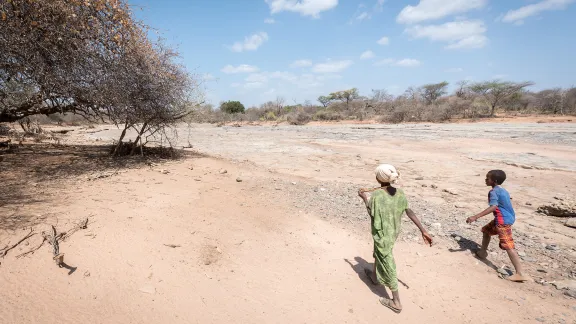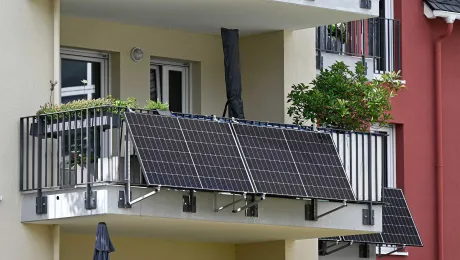
The Lutheran World Federation supports internally displaced people in several regions of Ethiopia, through emergency response on water, sanitation, and hygiene (WASH) as well as long-term development and empowerment projects, to help build resilience and adapt communitiesâ lifestyles to a changing climate. Photo: LWF/Albin Hillert
Launch of study “Climate change, debt, and COVID-19”
(LWI) - A new study titled “Climate change, Debt and COVID-19”, analyzes a vicious cycle: climate change and COVID-19 are producing massive costs, exacerbating debt in the poorest countries. The study indicates that due to the lack of funds to invest in improved resilience, future crises will be even more catastrophic.
The study was conducted by Bread for the World and erlassjahr.de. The Lutheran World Federation (LWF) contributed to its findings and presents the study with the German publishers at a webinar on 25 May.
The study provides an analysis of the linkages between multi-hazard exposure and countries' lack of resilience. This results in disaster risk with related loss and damage, sovereign debt risks, and the lack of investment into resilience building.
The study introduces the Climate Disaster and Debt Risk Index as a vital instrument to assess countries’ unique risks. Sixteen indicators – five for disaster risk, six for loss risk, and five for debt risk – analyze the specific situation in a country.
“The information provided by this approach can be used as an early warning instrument,” LWF’s Program Executive for Climate Justice, Elena Cedillo, comments on the results of the study. “The method helps identify specific risk drivers, measure and compare the severity of risks, and identify and prioritize areas where risks should be reduced.”
The study uses the Climate Disaster and Debt Risk Index to profile five low- and middle-income countries representing most-at-climate-risk regions of the world: El Salvador, Ethiopia, Sri Lanka, Lao People’s Democratic Republic (Lao DPR), and Papua New Guinea.
The findings show that each country’s risk profile is unique due to particular national circumstances. Because of this, their respective recovery strategies should be specific, too. E.g., Ethiopia is exposed to the highest climate, COVID-19, and other disaster risks. However, the relative loss and damage risk is considered highest in Papua New Guinea, closely followed by Lao PDR. The debt risk is highest in Sri Lanka, followed by El Salvador.
In her contribution to the study LWF’s Country Representative in Ethiopia, Sophie Gebreyes, says: “The recurrent nature of disasters, the one more devastating than the one before, leaves no time to build resilience.”
Commenting on the study’s findings on El Salvador, LWF’s Program Executive for Climate Justice, Elena Cedillo, adds: “Debt relief should serve to reduce vulnerability and prevent widening inequality gaps transparently, holding governments to account.”
Climate change, COVID-19 and debt reveals resilience gap
The study concludes that the triple challenge ‒ climate change, COVID-19, and the debt crisis ‒ reveals a huge resilience gap, the urgent need for solidarity, and a swift transition to a new development paradigm. A green recovery plan is needed – aligned with SDGs and the goals of the Paris Agreement.
A quick and structured debt relief process and the reform of international financial architecture must be among the key priorities of a green recovery. Targeted investments in resilience building and an accelerated economic transformation towards decarbonization and sustainability are needed. Rethinking risk, resilience, and debt relief is critical.
Bread for the World is the globally active development and relief agency of the Protestant Churches in Germany.
The German jubilee network “erlassjahr.de”/“Jubilee Germany“ campaigns that peoples’ living conditions are given priority over servicing sovereign debt.


